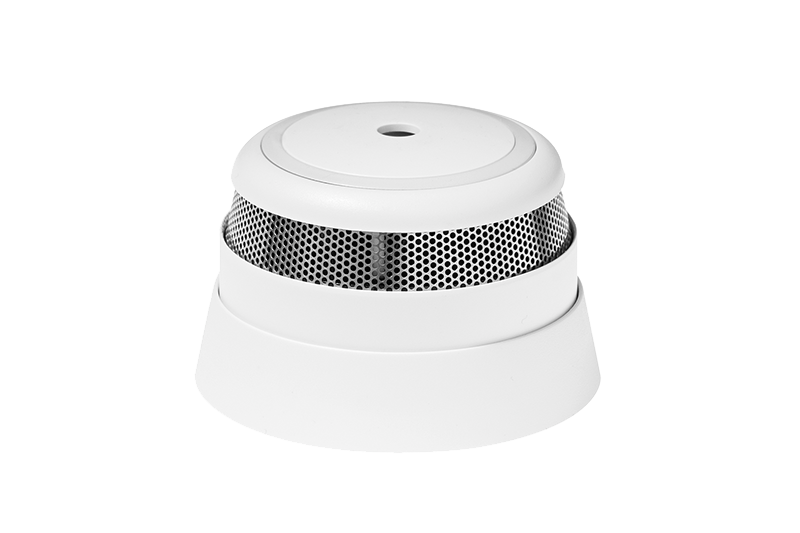Wireless smoke detector: Why opt for a white label product?
Building a smoke detector for a wireless solution means years of developing, testing, and certifying the product. Why not skip these processes and bring a mature product to the market right away?
By opting for a white label smoke detector, you can do just that. Check out how and explore the benefits of using white label products further here:
- What is a wireless smoke detector?
- How does it work to include a white label smoke detector in a wireless solution?
- 3 benefits of white label smart smoke detectors
What is a wireless smoke detector?
Smoke detectors are vital to have in any building. When the sensor detects smoke, a siren is activated, warning the people inside the building about the fire.
Wireless smoke alarms are also capable of sending remote messages when detecting smoke. This way, they will warn people who are not present in the building, e.g., through a notification on their smartphone.
Some wireless smoke detectors allow interconnection. With interconnected smoke detectors installed in the building, all connected detectors will be activated when one is triggered to make sure that people in different parts of the building get the instant fire warning as well.
How does it work to include a white label smoke detector in a wireless solution?
When opting for a white label smoke detector, you will get a market-ready product developed and manufactured by another company. The product comes without any branding, allowing you to add the visual identity of your company and make it appear as your own.
With a white label smoke alarm communicating via an open standard compatible with your wireless system, you will quickly be able to include it and skip lengthy development processes.
Click here to learn more about white label product
3 benefits of white label smart smoke detectors
- Required standards are met
In the EU, it is a requirement of smoke detectors for residential protection to meet the EN 14604 standard. With white label smoke detectors, you have the option to offer your customers a product that already meets the standard. This way, you will reduce the time spent on certifying the product remarkably.
- Place a mature product on the market
When using white label products, you have the possibility to bring mature products to the market. Get a product developed by experts in the fields of smoke detection and wireless communication to avoid providing your customers with a faulty solution.
It can quickly have fatal consequences if the smoke detector doesn’t function properly. Minimize this risk by using products that have been validated in large volumes.
- Speed up the time to market
By skipping the development process of a wireless smoke alarm, you will speed up the time to market tremendously. As wireless technology evolves quickly, your business will benefit from meeting market demands as soon as possible.
You will gain a competitive advantage by placing your product on the market before your competitors. When it comes to market opportunities, you will be one step ahead, and you can gain higher market shares.
Intelligent Smoke Alarm: A white label battery-operated smoke detector
The battery-operated Intelligent Smoke Alarm from Develco Products is a white label product ideal for wireless solutions in the insurance, security, and home care industries. This smart smoke detector communicates wirelessly using the Zigbee standard and it is easily integrated into Zigbee-based systems.

The small and minimalistic Intelligent Smoke Alarm will warn your customer about smoke while at home using a loud sound. While away, they will be notified immediately through an internet-connected gateway.
By connecting several Intelligent Smoke Alarms mounted in different rooms of the property, your customers will hear the fire warning, even though they are not close to the area where the fire started.
The Intelligent Smoke Alarm is DIN EN 14604 and DIN 14676 certified, and the product is Zigbee security (IAS) device.

